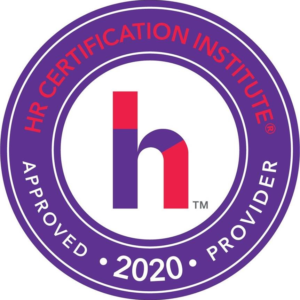Best Practices for NEW Managers
Audrey Halpern has had an exemplary 20+yr training facilitation/learning and development career. She is an experienced Faculty member of the American Management Association.

This webinar has been approved for 1.00 HR (General) recertification credit hours toward aPHR™, aPHRi™, PHR®, PHRca®, SPHR®, GPHR®, PHRi™, and SPHRi™recertification through HR Certification Institute® (HRCI®). Please make note of the activity ID number on your recertification application form. For more information about certification or recertification, please visit the HR Certification Institute website at www.hrci.org.
For any further assistance please contact us at support@grceducators.com

Unfortunately, being good at your job doesn’t guarantee that you will be a good leader or manager. Yes, you were good enough to get promoted but being a manager has challenges you never dealt with when you were an employee. The transition to management isn’t just a promotion and a pay raise—it’s a shift into a new type of role that requires new skill sets and you are bound to trip up along the way when you are first starting out. What matters most is how quickly you can formulate a plan and learn from those mistakes The session will give you an insight into the 10 common mistakes that newly transitioned managers and essential techniques tips on how to avoid them.
In many instances, new managers have not been trained in how to
deliver constructive feedback and they are unduly concerned that any
critical conversations will turn people against them. This webinar will
benefit those who have transitioned into a new management role with tips
and tools for engaging, motivating and building a high performance
teams.
Learning Objectives
If you have been a team member and are now the manager, it is important to
- Be able to learn how to delegate effectively
- Learn how to build trust
- Learn to manage up and communicate to all stakeholders
- Learn how to Engage your team members to identify areas for improvement
- Know and have a sense of your own capabilities
- The importance of building your credibility and managing tasks while leading people
- Managing Up- What it means and how to use it to communicate effectively
- Managing Peers
- Set expectations and follow-through
- Building your level of confidence with decision making and problem-solving
Course Level - Intermediate
Who Should Attend
Managers and Supervisors who have recently been promoted, those taking on new responsibilities, those with little or no formal training — even seasoned professionals needing a refresher — will benefit from the ideas, techniques, and tools offered in this powerful program.
-
$200.00
-


